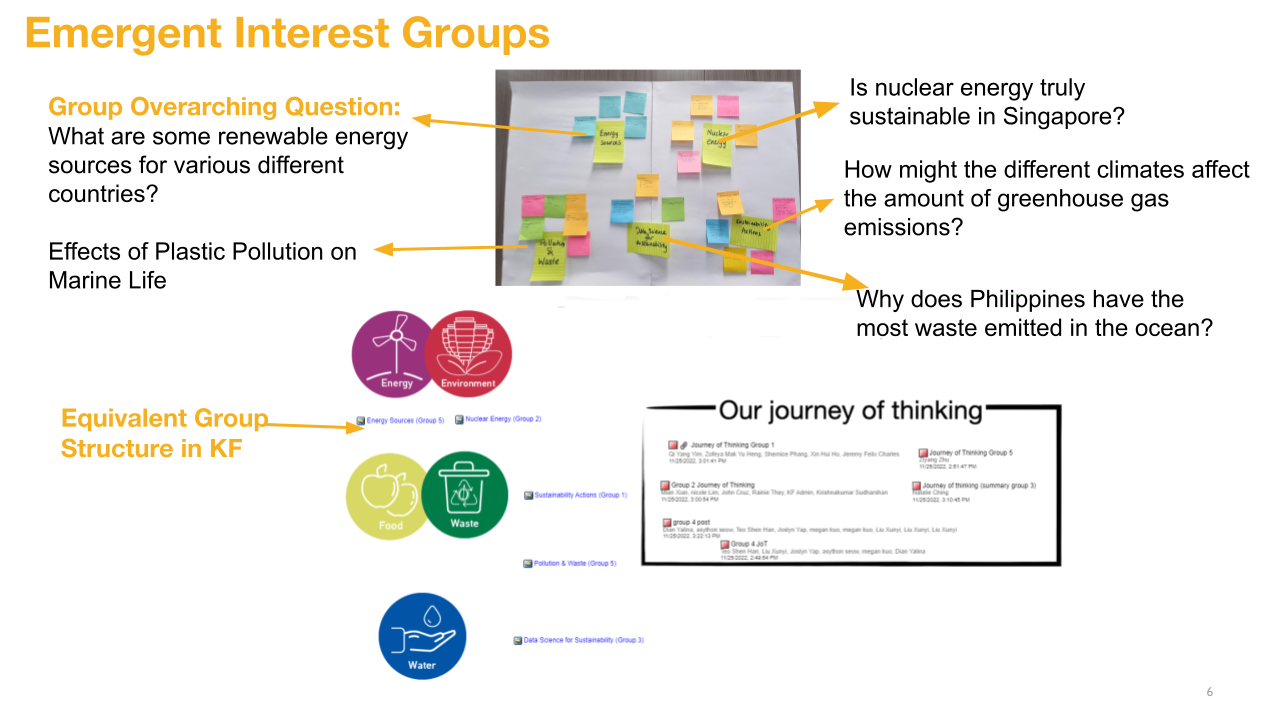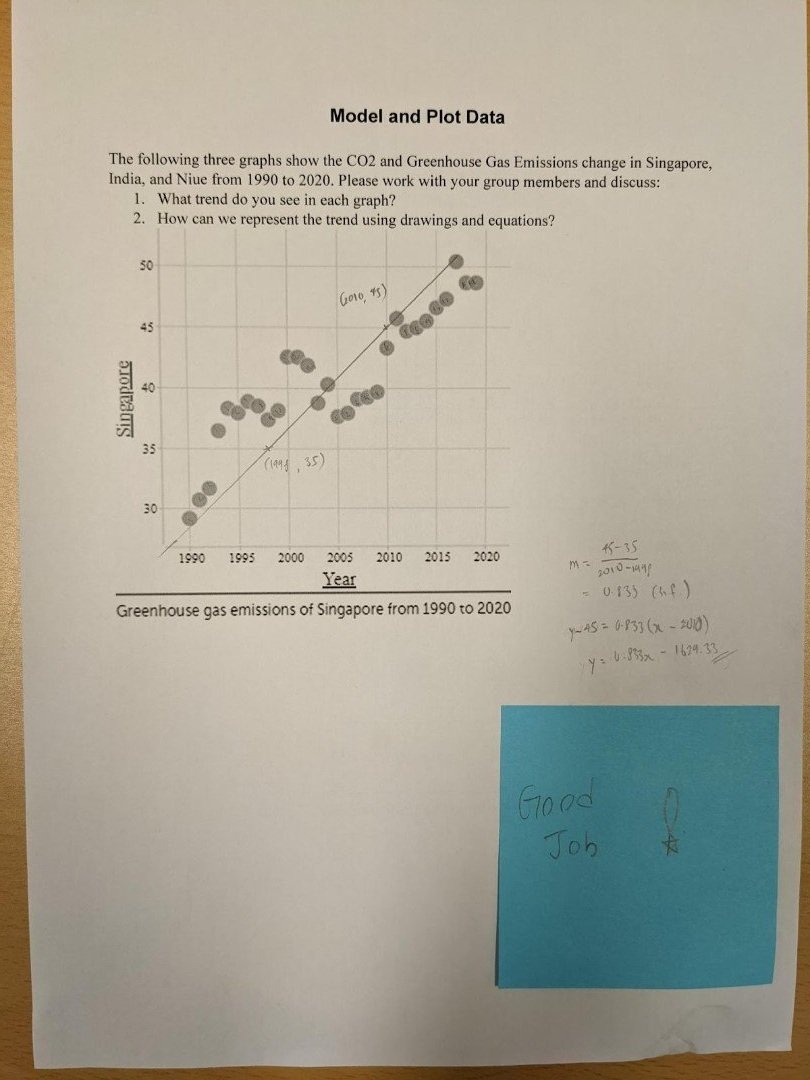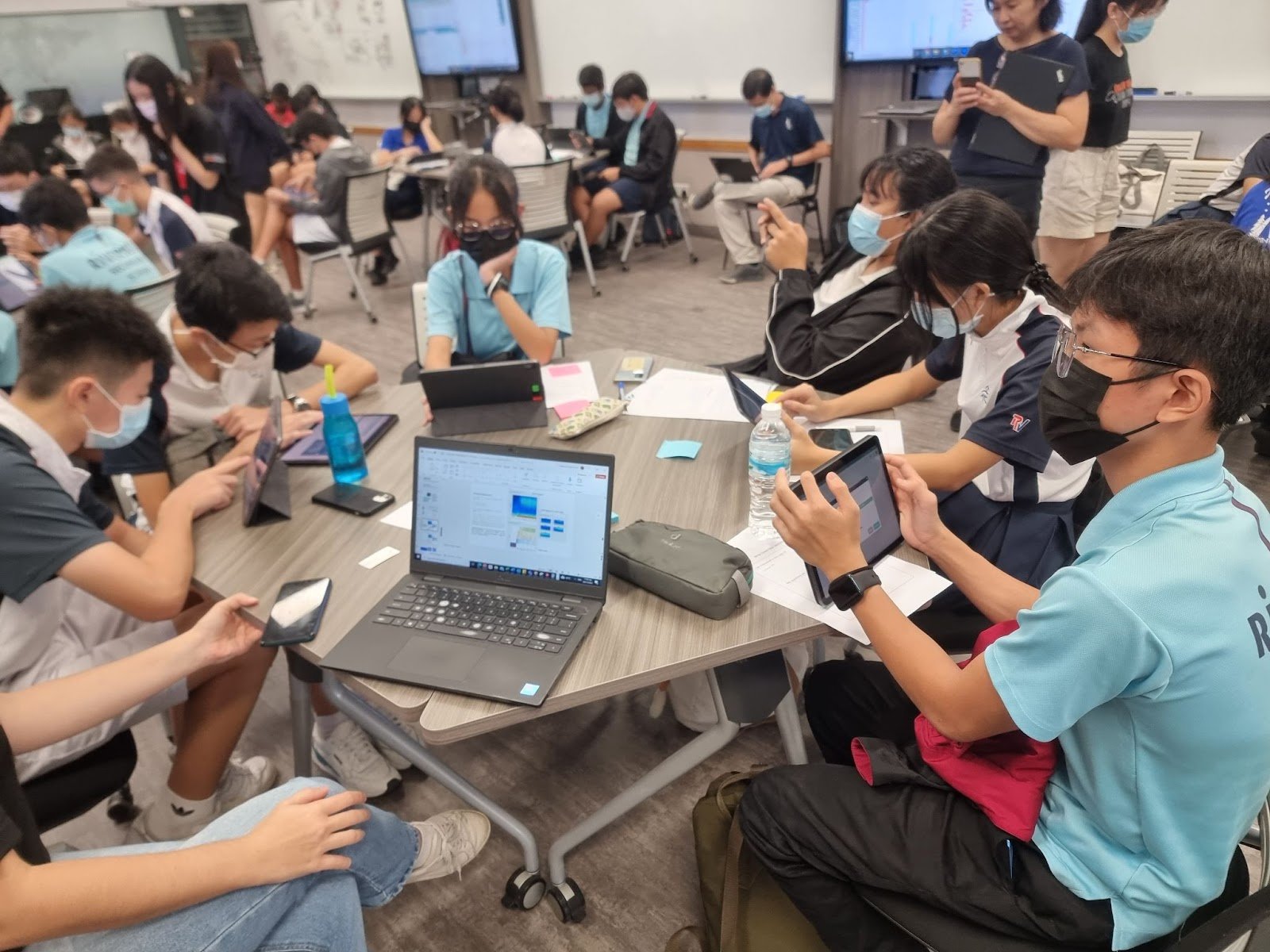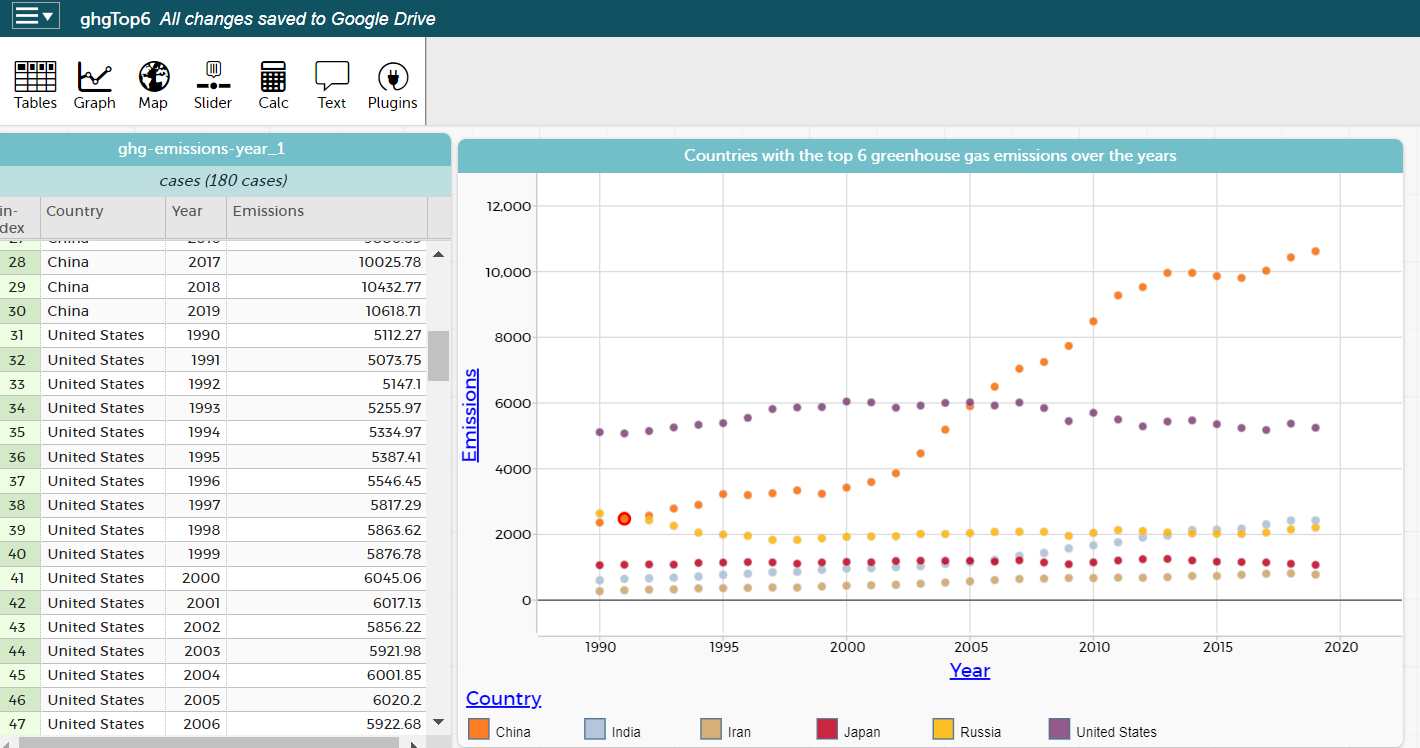Knowledge Building Design Studio: Data Science and Sustainability (24 and 25 Nov 2022)
Introduction
The 6th run of Knowledge Building Design Studio (KBDS), themed “Data Science and Sustainability”, was held on 24 and 25 November 2022. It was conducted in a hybrid format where Day 1 was face-to-face, and Day 2 was online. Together, we invited 45 secondary students, teachers, experts, researchers, and facilitators to investigate the real-world problem - “Sustainability in Singapore.” The team creatively integrated data analysis in understanding the theme of sustainability. This KBDS integrated multiple technology platforms, including data analysis software Common Online Data Analysis Platform (CODAP), ZOOM, and Knowledge Forum, an online discussion tool for knowledge building.
Main Design of the KBDS
Emergent Grouping to increase students' agency: In this iteration, we designed kick-off activities where students watch videos and hear experts sharing to spark their interests in related topics of sustainability and Data Science. Then students write down the topic they are interested in and form them tougher on an idea wall. Based on the common themes, five groups emerged, and students regrouped based on their common interests for deep investigation. A correspondent group structure was created in the online KF platform to further support students' group discussions.
Co-create A Journey of Thinking to synthesize the learning progress
Students wrote and shared in their group views, pursuing an in-depth understanding of their inquiry. Students reviewed the diverse idea contributions and synthesized their shared advances through co-authoring a reflection note - Journey of thinking (JOT). JOT facilitated students in synthesizing ideas and rising above in KF; with the scaffolds (Our questions, we used to think, we still need to know… ), students created one group Journey of Thinking to reflect on how their ideas progressed over the two days, and then shared in the community space.
Experts sharing
Several experts were invited to share their expertise regarding Data Science and Sustainability. The expert sharings helped students to learn more about what they can do with data and how data analysis can be used to solve real-world problems.
Ms Jeanne McClure, a Ph.D. Student in Learning Analytics from the North Carolina State University in the States, kickstarted by setting the stage– that Data Science is everywhere and helps us understand the world. Jeanne is involved in many COOL data science education efforts in both K-12 and higher education. She shared her insights about data science and invited students to engage in multiple hands-on interactive online interactions.
The sharing continued with Mr. Ong Lip Sin, who is the Business Operations Planning Manager at the NTU Sustainability Office. Their office facilitates NTU's commitment to the well-being of a shared world and mitigating the environmental, social, and economic challenges of building a sustainable tomorrow. He shared about sustainability issues, efforts and goals adopted by NTU and their relevance to the world.
There were sharings by a research assistant, Ahmed Hazyl Hilmy, and two students, Minh Anh and Minh Tuan, on their experience with data science. They helped students to see the many possibilities and ways of exploring the world through data science.
Ahmed Hazyl Hilmy is a research assistant at the National Institute of Education, Singapore. He specialises in designing technological tools to support and enhance learning. He works with a research team that designs pedagogical strategies and curricula involving the use of immersive learning environments, open-source software and hardware (such as Arduino, micro: bit and Raspberry Pi), and machine learning.
Minh Anh and Minh Tuan are a pair of student researchers who have experience in collecting and analyzing data for their project under the Nanyang Research Programme. They just finished their O level this year and are continuing their research.
On day 2, a data scientist, Professor Farhan, was invited to give students feedback on refining their investigative question and data analysis.
Farhan Ali is an Assistant Professor in the Learning Sciences and Assessment Academic Group. A neuroscientist by training. Farhan received his Ph.D. (Neuroscience) from Harvard University, doing basic research on brain circuits. He gave students useful comments and suggestions to improve their project– by revisiting the clarity of graph visualization, clarifying the relationships between variables, considering multiple factors, and analyzing techniques to explore their data further.
Moving Forward
Through this run of KBDS, students were able to apply data science skills and use the CODAP statistical tool to analyse and interpret data. In the upcoming run of KBDS, students will be able to use a new statistical tool, JASP, in addition to CODAP, to solve investigative questions related to sustainability. KBDS 2023 will be a fully face-to-face event, with more opportunities for hands-on activities and experimentation. Students will delve deeper into environmental and sustainability issues. They will engage in knowledge building discourse with peers across different cultures, and work with international students, scientists and experts from energy industries. Students will get the opportunity to go on an exciting field trip to witness how Singapore develops some innovative solutions to tackle sustainability issues.










